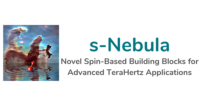Our consortium is composed of 7 european research institutions from 4 different countries (France, Germany, Sweden and Czech Republic)
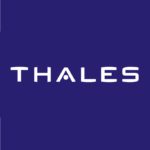
THALES is a world leader group for electronics and a key player in numerous markets such as aerospace, space, ground transportation, digital identity and security, physical and cyber security and defense. Completed in 15 months, the acquisition of Gemalto by Thales for €4.8 billion creates a Group on a new scale and a global leader in digital identity and security employing 80,000 people in 68 different countries. The larger Thales will master all the technologies underpinning the critical decision chain for companies, organizations and governments, and will develop secure solutions to address the major challenges faced by our societies, such as unmanned air traffic management, data and network cybersecurity, airport security or financial transaction security. Research and development (R&D) is at the core of the new Group, with its 3,000 researchers and 28,000 engineers dedicated to R&D. Thales has been developing state-of-the-art technologies to meet the most demanding requirements of customers around the world for decades. Today the Group has become a giant laboratory inventing the world of tomorrow, with a portfolio of 20,500 patents, of which more than 400 new ones were registered in 2018. THALES participates to the k-NET project with Thales Research & Technology France (TRT-fr), the main multidisciplinary research unit of THALES, located on the Campus of Polytechnique in Palaiseau. Through its internal activities and scientific links with industries and universities, either in France or internationally, TRT is participating in the preparation of THALES industrial future in strategic R&D fields. In addition to R&D activities, TRT-fr also provides scientific and technical advice, expertise or services for the company. TRT-fr accounts for 3% of total R&D of the Group and employs 220 full-time staff and over 40 PhD students. The center has more than 13000 m2 of labs and 1700 m2 of clean rooms. TRT-fr has a strong record track in optics & optoelectronics, electronic components for microwave applications, III-V components, optical & biochemical detection devices, lasers, packaging, materials, software architecture and cognitive science. TRT-fr research teams have very diverse skills ranging from materials elaboration (polymers, epitaxy of various semiconductors, superconductors, dielectric or magnetic thin films, ceramics, etc.), through component modelling, processing, testing, assembly and packaging, to integration in appropriate demonstrators, which allow full validation of the technologies investigated before their transfer to operational divisions of Thales Group.
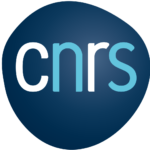
The Centre National de la Recherche Scientifique (CNRS) is a state-funded science and technology establishment placed under the authority of the French Minister for Research with around 25.000 people. CNRS carries out research in all scientific fields to improve knowledge, ensure economic and technological development and solve complex societal needs. CNRS is organized in more than 1000 laboratories, either on their own or in partnership with universities, other research organizations or industry. CNRS has more than 300 cooperation programs with 40 countries. CNRS annual budget (several billion) comes mainly from French government and own resources representing 1/4 of France public spending on civilian research. The CNRS is strong of 18 Nobel laureates and 11 Fields Medals.
Three CNRS laboratories will be involved in s-NEBULA: CNRS-IEMN, CNRS-UMphy and CNRS-LPENS.
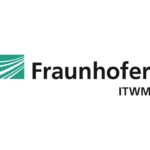
The Fraunhofer-Gesellschaft is the leading organization for applied research in Europe. Its research activities are conducted by 72 institutes and research units at locations throughout Germany. Around 70 percent of the Fraunhofer-Gesellschaft’s contract research revenue is derived from contracts with industry and from publicly financed research projects. The implementation of mathematical methods and technology in application projects and their development in research projects are focal points of the Fraunhofer ITWM. Integral components are consulting, implementation and support in the application of high-performance computer technology and the provision of tailor-made software and hardware solutions. The center for materials characterization and testing at Fraunhofer ITWM that is involved in this project is the leading institution in the Fraunhofer-Gesellschaft for industrial THz application, specialized on non-destructive testing with electronic (70 GHz-1 THz) as well as optical THz systems (0,1 THz-10 THz). The center has considerable experience on optics, non-linear and ultrafast optics, as well as know-how associated with ultrafast lasers and photoconductive switches as well as with microwave and millimeter-wave equipment for THz radiation manipulation in the frequency and time domain.
This know-how is ideal for ITWM to lead the proof-of-concept task on nondestructive testing. ITWM is one of few institutions that combine the expertise in THz generation and detection with detailed knowledge on industrial processes to be tested and the ability to produce integrated THz systems operating under harsh industrial conditions.
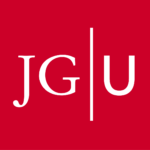
Johannes Gutenberg-University Mainz (JGU). Currently, some 32,500 students, 10 percent from abroad, study at JGU, making it one of Germany’s largest Universities. JGU has a strong research focus and regularly achieves leading positions in international research rankings. Annually, about 700 PhD students complete their studies at JGU. The Welcome Center for visiting scholars and students provides support for all contractual, insurance, visa and accommodation issues. In the recent ranking survey for funding for basic natural science by the DFG the University was most successful among all German universities not only in total but also per scientist. Within the University the condensed matter physics division took the lead and is ranked in Germany in 2018 as #1, emphasizing the fact that the Department of Physics of JGU is one of the largest and regularly most highly ranked departments (top 10 in Germany, top 100 in recent rankings globally).
More than 40 Professors and more than 100 permanent faculty members as well as 300 PhD students have attracted a research cluster as well as a graduate school (Materials Science in Mainz) in the German Excellence Initiative.
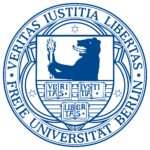
The Department of Physics of the Freie Universität Berlin (FUB) has a strong, longstanding and successful research focus on ultrafast dynamics in condensed matter. A substantial part of these activities is currently bundled in the Collaborative Research Center (CRC) “Ultrafast Spin Dynamics”, which is home to 25 principal investigators. Amongst them, the Terahertz Physics Group at FUB aims at pushing spintronic effects to the terahertz (THz) frequency range, on one hand to dissect the initial microscopic steps of these effects, on the other hand to explore possible applications in THz photonics. Latest accomplishments are the disentangling of spin-lattice equilibration in ferrimagnetic insulators and the development of spintronic sources of broadband THz radiation.

Nanotechnology Centre at VSB-Technical University of Ostrava (Czech Republic) is a research institute focused on modeling and characterization of physics
The main expertise includes description of multilayer and periodic anisotropic structures based on Scattering matrix algebra, light source dynamic models, optical and magneto-optical properties of materials, special ellipsometric and polarimetric techniques, optimization of diffracting structures, design of functional devices, material modeling from first principles.

Uppsala University is an international university with world-leading research and first-class education of global benefit to society. The mission of UU is to gain and disseminate knowledge for the benefit of humankind and for a better world. UU strives to advance science and technology research and contribute to the development of technological innovations that foster prosperity, sustainability and provide benefit to humanity. UU is the oldest university in Scandinavia, founded in 1477, with historically a strong tradition in high-level education and research. UU has currently over 42 000 students and over 7 000 employees. UU is ranked No. 63 worldwide (ARWU).
The Department of Physics and Astronomy is a strong research environment in several areas of physics, particularly, photoelectron and x-ray spectroscopy, nanoscience and advanced computational modeling. The Ångström Laboratory houses modern clean room facilities for nanofabrication, characterization and provides access to state-of-the-art electron microscopy facilities. The Department of Physics and Astronomy is ranked No. 36 worldwide (Shanghai ranking).
